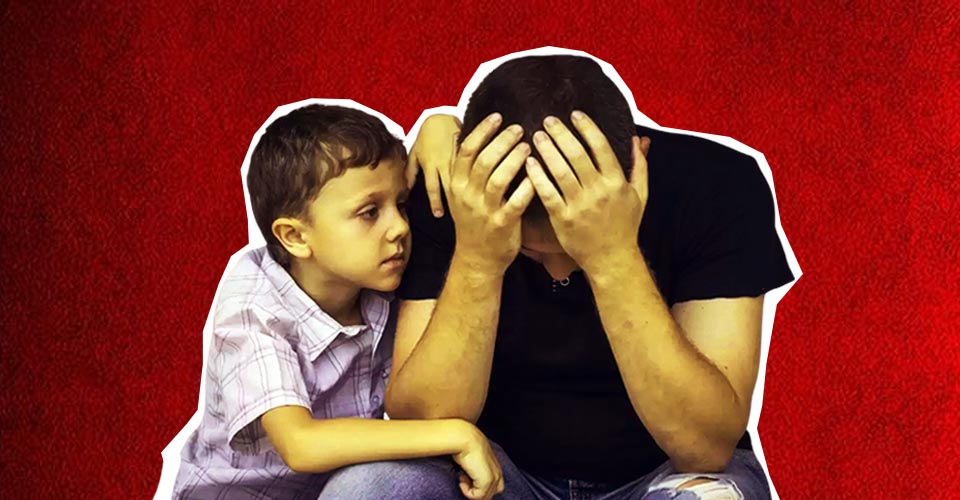A parent is the primary caregiver of children and a source of unconditional love and support! However, not every parent can be the role model their children want them to be.
According to the National Alliance for Caregiving, around 1.4 million kids in the United States experience something called parentification. But here’s the thing – it often goes unnoticed or isn’t talked about.
In this article, we will be exploring the parentification meaning and how it hurts your child’s life! Parentification isn’t just about kids doing more; it can have a big impact on the way a child can grow psychologically and cognitively!
Let’s explore this idea in simpler terms to help you understand and address the harm we are causing to our children.
Parentification Meaning And Its Emotional Toll On Kids
The word “parentification” was made up by the psychiatrist Ivan Boszormenyi-Nagy. It describes a situation where the parent and child roles get flipped, messing up how a child is supposed to grow up. This switch can cause serious problems for the child’s mind and body.
Parentification is when parents rely on their kids for emotional and practical help instead of doing those things themselves. This makes the child act like a grown-up and take on responsibilities way earlier than they should.
The kids doing this don’t usually get thanked or supported for doing adult stuff. Researchers say this can often lead to childhood trauma in kids, hampering their happiness and growth!
When parentification gets bad, it means parents are kind of repeating the tough and hurtful experiences from their childhoods without realizing it. This \cycle keeps going, affecting not just the current kids but also the ones after them.
Read More: What Is Gestational Surrogacy and Its 8 Key Benefits
So, it’s important to notice and stop these patterns to have healthier families.
Types Of Parentification
Parentification is like when kids have to do jobs that are usually for adults. There are two main types: emotional parentification and instrumental parentification.
1. Emotional Parentification
Imagine if kids have to help their parents feel better. Instead of getting hugs and support, they become the person who cheer up their mom or dad. It’s like being the superhero for grown-up feelings, even though they’re still figuring out their own emotions.
This can make things a bit tricky for kids. They might feel like it’s their job to make their parents happy. It’s important to notice this early on and make sure kids get the right support and care they need to be happy themselves.
2. Instrumental Parentification
In instrumental parentification, children may get jobs that are typically done by adults such as preparing meals, doing laundry, and taking care of little siblings.
One of the effects of parentification on kids is that they grow up in a way and miss being a normal child whereby they do things that are meant for grownups.
Overdoing adult stuff makes it difficult for children to have fun during their childhood years and acquire knowledge at their own pace. Grownups need to understand this and come up with strategies for allowing children to be themselves while still participating in activities appropriate for their age.
It’s good to find the right balance between assisting with feelings or doing adult tasks so that kids can enjoy a happy childhood. Watch out for more on such effects on children and families in our future talks!
Read More: What Is Snowplow Parenting | 5 Alarming Signs to Avoid
Long-term Negative Effects Of Parentification on Children
Parentification, both emotional and instrumental, can have negative effects on children. Here are some of the key effects of parentification on children:
1. Feeling Annoyed:
Kids who are supposed to cheer up their parents may become anxious and troubled. They may experience difficulty in coping with their own emotions because they are continuously occupied with looking after their mothers or fathers.
2. Growing Up Too Fast:
By carrying out adult tasks, children lose out on being kids themselves. They might not get to play and learn like they should because they’re too busy taking part in adult activities.
3. Family and Friendship Problems:
Children trying to be parents may also ruin their ability to relate well with peers or siblings. They may find it hard to make friends, ask for what they need, or trust others.
4. Learning and Having Fun Not:
Losing childhood means losing learning and fun as well. Taking the responsibility of an adult can make it hard for them to focus on schoolwork and other things that bring joy to the children.
5. Feeling Exhausted And Stressed Out:
This will make them feel tired most of the time; suffer from headaches even; lack sleep due to excess duties hence making them feel stressed out.
6. Not Knowing Themselves:
If roles between parents and children get mixed up it becomes difficult for a child to discern themselves from adults; therefore they don’t know what they want as individuals since there is always confusion about what their parents require
7. Difficulty Saying No:
Being accustomed to satisfying the needs of their mother(s) or father(s), these kids find it complicated to say “no” or ask for things that matter to them. And this makes it difficult for them to establish boundaries when taking good care of themselves.
8. Relying On Others Too Much:
When young people have played the role of adults they could become over-reliant on other people’s opinions concerning them. They can feel that to be happy with themselves they have to be through with others.
Sometimes, children who were parentified continue the same cycle when they become adults and start their own families. This is why we need to grasp the parentification meaning clearly and robustly.
Read More: What Are Daddy Issues? Understanding The Psychological Impact of Absent Fathers and How To Cope
Preventing Parentification Trauma In Kids: 8 Tips For Parents!
Below are some of the tips parents can use to create a healthy environment and avoid such experiences:
1. Mind Emotional Boundaries:
Develop open communication channels but avoid burdening your child with adult burdens. Appropriately sharing your feelings without pressuring them to grow up too fast.
2. Encourage Age-Suitable Independence:
Give your child tasks that they can handle at their stage of growth and gradually teach them independence. This will help them strike a balance between home chores and playtime without missing essential childhood experiences.
3. Give Enough Emotional Support:
Help him/her in dealing with emotional needs by providing comfort and reassurance. A strong emotional bond between you two guarantees they can deal with life challenges without feeling like adults.
4. Let Them Play and Explore:
Ensure that there is ample time for play and exploration for your child. It enhances their development and facilitates learning, socialization, and building of key skills in a relaxed atmosphere at the same time.
5. Set Boundaries:
Create a distinction between parent and child roles. Do not expect your child to make or discuss matters that they cannot comprehend clearly. Responsibilities and expectations should be outlined to maintain a healthy family relationship.
6. Seek Help When Needed:
Whenever you find it difficult to fulfill parental duties due to various challenges, reach out for assistance from friends, relatives or experts who could help you through the complexities involved in this situation so that it does not become an accidental imposition on the young one.
7. Allow Feelings to be Expressed:
Making it possible for your child to express their emotions and desires in a protected space provided by you as their parent through open communication has helped them develop emotional intelligence rather than taking responsibility for family emotions.
8. Professional Assistance Might Be Necessary:
In case one recognizes any sign of parentification trauma in their children or inability to have a balanced environment; mental health experts may come in handy too because therapy provides one with the instruments needed to go through such challenges and create a positive family atmosphere.
By following these tips, parents could create an environment that will help children grow well so that they have a nurturing childhood appropriate for their age.
Read more here: 3 Signs You May Have Suffered Childhood Emotional Incest
A Word From Mind Family
Parentification is more than the fact that children are given additional responsibilities; it gets to the core of their psychological and cognitive development.
Understanding the parentification meaning requires you to have an empathetic mind towards your children!
For families, it is important that they consciously acknowledge and change these habits so that healthier relationships and environments can be developed. Our blog into parentification highlights the complexities experienced by children when roles get exchanged.
At Mind Family, we believe in understanding, having empathy, and offering support. This way, they as parents can help boost their children’s total well-being thus setting them up for a happy and satisfactory life.
It is important as parents to break this cycle together and make each family an environment where every child can prosper!
Frequently Asked Questions (FAQs)
1. What is the parentification meaning?
Parentification happens when parents rely on kids for emotional and practical help, making them act like grown-ups too soon. It can impact a child’s growth and happiness, causing potential long-term effects.
2. How to prevent parentification trauma in children?
To prevent parentification trauma, parents should set clear boundaries, encourage age-appropriate independence, and seek support when needed. Creating a balance between responsibilities and play fosters a healthy environment.
3. What is emotional parentification?
Emotional parentification occurs when kids become the emotional support for their parents. Instead of receiving support, they cheer up their parents, affecting their emotional well-being.
4. What are the effects of parentification on children?
Parentification can lead to kids feeling upset, growing up too fast, having trouble with relationships, struggling in school, feeling stressed, losing a sense of self, having difficulty saying no, and depending too much on others. It’s crucial to recognize and address these negative effects.












Leave a Reply